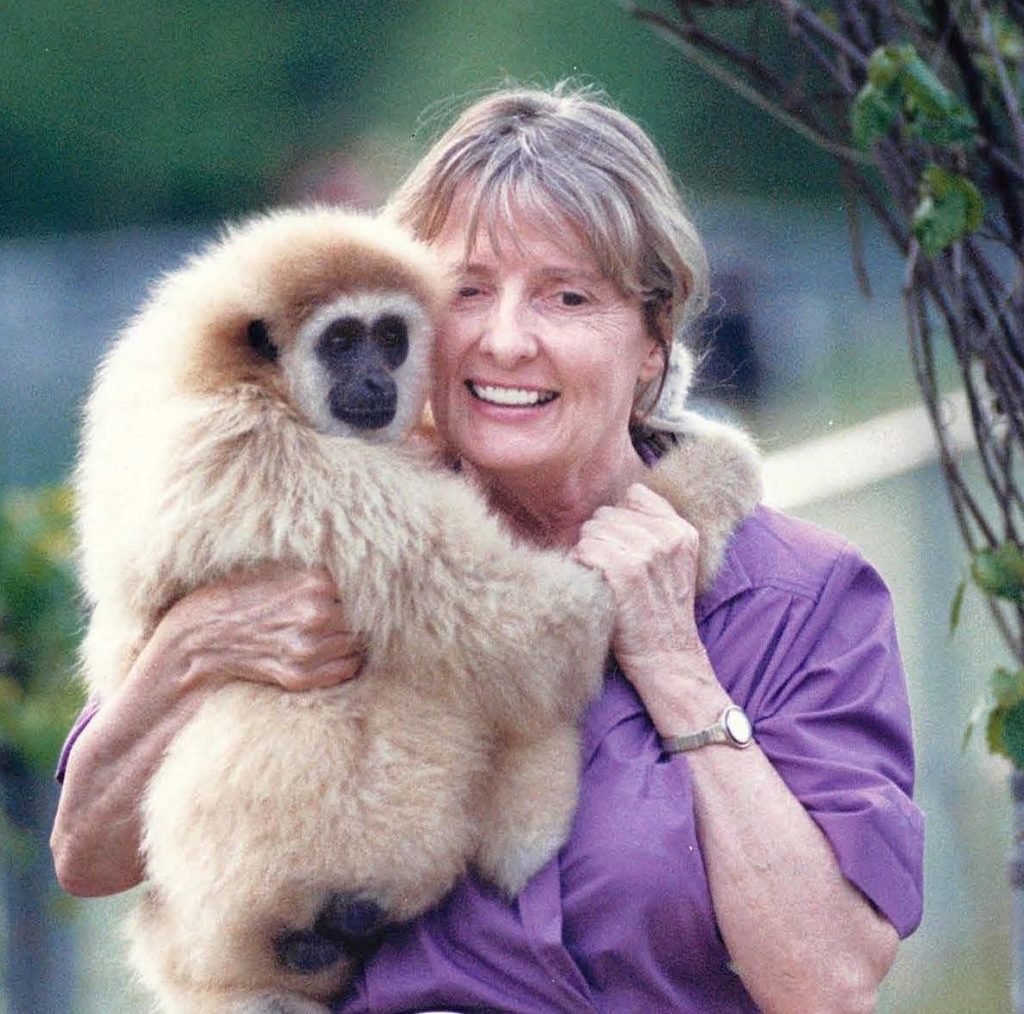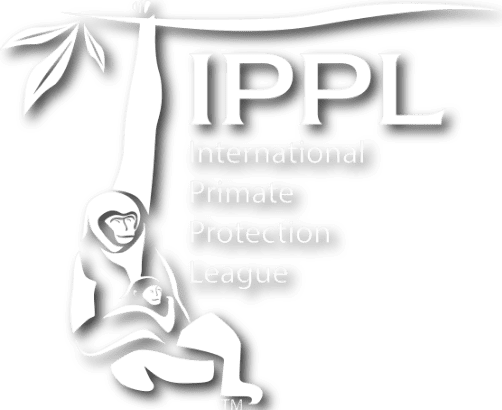
As Founder-Chairwoman of IPPL, I have now spent over half my adult life working to make the world a better place for nonhuman primates who share our world, and I intend to spend the rest of my life working on this cause!
IPPL News, December 1992
Dr. Shirley McGreal 1934 – 2021
A global citizen, Dr. Shirley McGreal was born and raised in England. With the intention to have a career in education, she received a bachelor’s degree in French and Latin and then a master’s degrees in teaching education at Royal Holloway, University of London. She taught languages in schools and colleges in the United States, Australia, and France, then earned a second masters in French literature at the University of Illinois. In 1971, she received her Ph.D. in education from the University of Cincinnati.
Dr. McGreal lived in various parts of the United States, Australia, France, and India before moving to Thailand. It was there that her life’s course changed.
A MORE ADVENTUROUS LIFE STARTED WITH CRATES OF BABY MONKEYS...
While living in Thailand in the early 1970s, Shirley witnessed firsthand something she never forgot: dozens of snow-white wild baby monkeys confined to cramped cages, their helpless arms outstretched to passersby. They were infant stump-tailed macaques, their mothers certainly shot to procure them, and they were being held at the cargo area of the Bangkok Airport awaiting transport to some horrifying laboratory overseas.
Later, walking through the Bangkok Sunday markets, Shirley also saw wild baby gibbons, alone in their pathetic cages; they had been captured for the domestic pet trade, even though these same animals would typically be discarded by their owners after reaching maturity in a few years.
Shocked by the deplorable conditions under which these animals were being captured, transported, and exploited, Shirley began to investigate the plight of the world’s primates and soon discovered that the matter went beyond animal cruelty. As a result of unsustainable and illegal trading practices, many primate species were being dangerously depleted.
She also discovered that no organization worked to protect all primates, great and small. Although large apes like chimpanzees, gorillas, and orangutans have always had dedicated fans, there was no organization that seemed interested in helping the “plain” monkeys whose sufferings often went unnoticed by the rest of the world.
In 1973, Shirley transformed her concern into action and formed the International Primate Protection League (IPPL). In her role as the leader of this organization for almost 50 years, Shirley worked tirelessly at the grassroots level to protect all primates from the abuses she had seen at human hands.
Thousands of primates around the world are alive and thriving today thanks to her unwavering dedication.
A GIBBON SANCTUARY IN SOUTH CAROLINA
Shirley established a gibbon sanctuary in South Carolina in 1977. The first were four gibbons she rescued in Thailand, and they paved the way for dozens more. In addition to research labs, these gibbons came from inferior zoos, tourist attractions or were kept as pets. Over the years, she also gave sanctuary to many Asian otters retired from zoos.
A LIFE OF ACTION
As a result of her work confronting international animal smugglers, Shirley went undercover to investigate primate smuggling rings and laboratories, received death threats from illicit animal dealers, and was the target of groundless and expensive lawsuits. But that never stopped her.
From 1979 through 2018, Shirley participated in all but three of the Conferences of the Parties to the Convention on International Trade in Endangered Species (important gatherings that help determine which species will be accorded special international protections), as well as numerous meetings of the International Union for Conservation of Nature (IUCN) and the International Primatological Society. Her gift for languages was an asset in these international activities: in addition to English, she spoke French, Spanish, and some Hindi.
Shirley also involved IPPL in productive relationships with other grassroots nonprofit sanctuaries and pro-wildlife advocacy groups located in countries around the world, particularly where primates are native. Shirley felt that it was important to encourage cooperation between animal and environmental organizations both at the grassroots level and on a global scale.
INTERNATIONAL RECOGNITION
For decades, Shirley’s dedication knew no boundaries. She received worldwide recognition for her tireless efforts to protect the world’s primates including:
- The Jeanne Marchig Award Marchig Animal Welfare Trust in 1988, in recognition of her “practical work in the field of animal welfare…to bring about a more humane and compassionate attitude towards non-human primates.”
- At the Rio Earth Summit, in 1992, she became a laureate of the United Nations Environment Programme’s Global 500 Roll of Honour for Environmental Achievement, a prestigious list that honors those who are on the “front lines of global environmental action.”
- In 2004 Shirley received the Chevron Texaco Conservation Award for her tireless efforts to make the world a safer place for primates.
- She was nominated to be an Animal Planet “Hero of the Year” for 2007.
- In 2008, Shirley received the first Caroline Earle White Award from the American Anti-Vivisection Society.
- As a British citizen, Shirley was particularly honored to receive the Order of the British Empire from Queen Elizabeth II in June 2008, “for services to the protection of primates” in a ceremony held at Buckingham Palace.
- In 2014, Shirley was presented with a Lifetime Achievement Award for her “many years of service to wild and captive primates worldwide” by the North American Primate Sanctuary Association.
Shirley was an Honorary Life Member of the Wildlife Society of Bangladesh and Honorary Fellow of the Indian Society of Naturalists. She was often quoted, and her work reported and praised on websites and in newspaper articles and magazines around the world. In 1993, People magazine featured her as one of its “People of the Year” in its “Above and Beyond” section. And one long-time IPPL supporter submitted a description of Shirley as an Earthkeeper Hero on the My Hero website, an online project that aims to inspire children with positive role models drawn from many walks of life.
Of all her commendations, though, Shirley was perhaps proudest of the small plaque that hangs on IPPL’s office wall: the plaque was presented to her in 1994 by the Interpol Wildlife Crime Group/Dutch Police League in honor of her work in exposing an international ring of primate smugglers that had been responsible for (among other crimes) attempting to smuggle six young orangutans, as well as a mother siamang and her infant, via Bangkok Airport.
HER GREATEST DAILY SATISFACTION
Shirley made her home on the grounds of the IPPL Headquarters Sanctuary until her death on November 20, 2021. There, she shared her home with Newfoundlands and Great Pyrenees and helped rescue a number of other canine companions.
A favorite part of each day was when Shirley walked the peaceful sanctuary grounds greeting each gibbon with a term of endearment such as: “Hello Darling” and then giving them a fig newton treat. But her greatest daily satisfaction was always being able to hear the songs of the dozens of gibbons whose lives she had saved.
Since the early 1970’s when Shirley witnessed the horrific treatment of primates in Asia, she made it her life’s mission to help primates around the globe. Her compassion and determination to save and protect primates for almost 50 years has left an indelible mark around the world.

